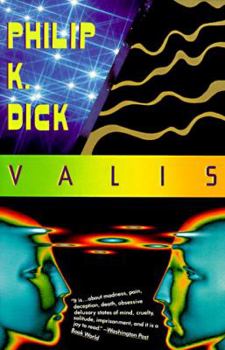Book Overview
VALIS is the first novel in a mesmerizing, science-fiction philosophical trilogy by Philip K. Dick, the Hugo Award-winning author of The Man in the High Castle and Do Androids Dream of Electric... This description may be from another edition of this product.
Customer Reviews
Not for the Religiously Timid
A monolith of literature
"You cannot think about it without becoming part of it."
An Oddly Disorienting Masterpiece
You Either Get It or You Don't....
VALIS Mentions in Our Blog

Welcome to Sold, Viewed, Playful, New, where we spotlight popular/fascinating/favorite items in four distinct categories. Sold, for used books. Viewed, for DVDs or Blu-rays. Playful, for board, card, or video games. And New, for new books. Author Erik Davis coined the term High Weirdness in his book of the same name to refer to a genre of Sci-Fi and philosophical writing that charted "the emergence of a new psychedelic worldview out of the American counterculture of the seventies." While Davis focused primarily on authors from America’s west coast, I'm going to expand the category to include a bit more with this month's recommendations.






